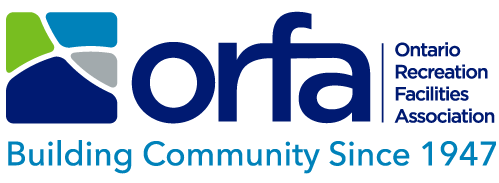- ORFA Home
- Events
- Course Descriptions
- Leadership Skills for Recreation Professionals
Leadership Skills for Recreation Professionals
This course is focused on providing recreational professionals with the practical skills and knowledge needed to provide effective leadership to their organizations while providing a positive influence in their respective communities. The program is designed around three main themes:
- The Role of the Leader: Modelling the Way;
- Communicating to Persuade and Influence: both inside and outside of the organization;
- Working with others in order to ensure organizational success: teamwork, collaboration and networking.
Day One
On Day One, participants will explore the concept of leadership, understand the difference between leadership and management and will be provided with insight into how to set up their leadership environments in order to be more effective leaders and decision-makers. They will understand that the leader’s role in the leader-follower relationship is to create the environment for positive relationships and to be the example for others to follow.
Participants will be able to:
- create an energized and productive leadership environment by establishing the standards of excellence and modelling those standards on a daily basis.
- analyze a leadership scenario to choose the appropriate acceptable leadership behaviour.
- distinguish between the six acceptable leadership behaviours
Day Two
On Day Two, participants will explore the topics of followership, communications, building and leading teams and understanding the importance of life-long learning through both positive and negative experiences. They will understand that leaders are always communicating; either verbally or non-verbally and the most effective use of electronic communication. Teams are becoming the building blocks of organizations. Much of organizational work is inter-dependent which means that individuals and departments rely on the work of other individuals in order to accomplish their work. Understanding the complex nature of teams and the ability to collaborate are essential to team and organizational effectiveness.
Participants will be able to:
- select the most effective channel of communication based on the importance of their message
- understand the leader’s role in building, guiding and supporting teams
- explain the process by which teams develop critical capabilities
- comprehend the principles of collaboration
Day Three
On Day Three, participants will explore the leader’s role in establishing the ethical climate within their organization and how to respond when crisis impacts their organization or its people. One of the most important qualities of leadership is the ability to accept risk and make decisions on behalf of the organization. Resilient individuals do this well because they trust in themselves and in their own judgement. The attitude that all failures are bad means that organizations don’t know how to learn from them. There are no failures if new learning occurs.
Participants will be able to:
- comprehend the basic principles of ethical decision-making
- comprehend the qualities and characteristics of resilience
- employ strategies to increase their resilience
- employ strategies to turn perceived failures into valued learning experiences
Day Four
On Day Four, participants will gain a greater understanding of what it means to be the senior leader in an organization. Participants will understand the differences between direct and indirect leadership and how intuition, creativity and vision are needed to move an organization forward and ensure its relevance and survivability.
Participants will be able to:
- contrast the the differences between strategic, organizational and tactical thinking
- recognize the different components of strategic thinking
- understand the different focus required to be effective when in a direct or indirect leadership role
Supporting Outcomes
The main themes will be supported by four sub-themes that will be stressed and reinforced throughout each of the four days. These sub-themes are critical thinking, self-awareness, emotional intelligence and continuous learning.
This course is worth 28 professional development credits towards recertification of any ORFA professional designation.
Upcoming events
|
